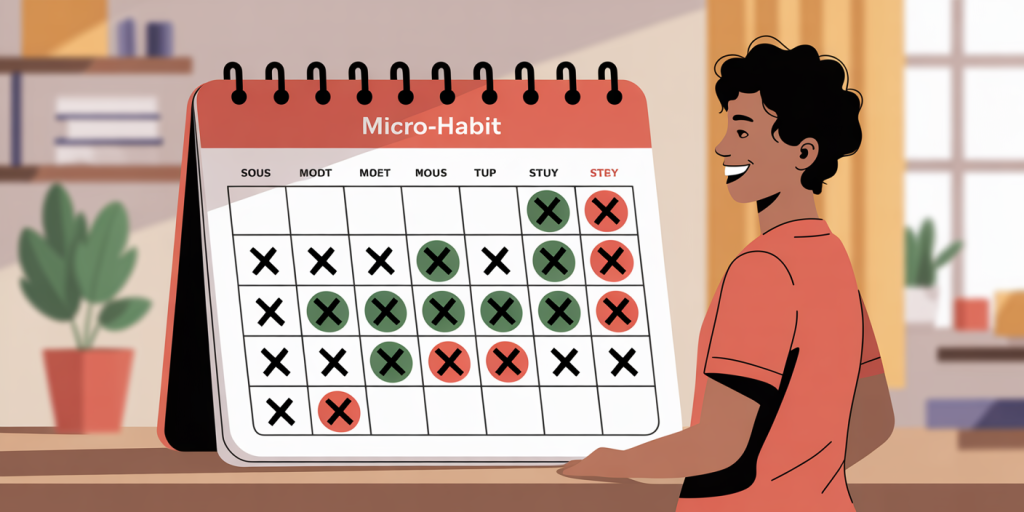Why Tracking Micro-Habits Can Change Your Life
In the pursuit of personal growth and productivity, the role of habits cannot be overstated. From fitness enthusiasts to successful entrepreneurs, the adoption and maintenance of positive routines have long been associated with improved outcomes. However, a shift in focus from large, sweeping changes to minute, manageable behaviors called micro-habits is revolutionizing how we approach self-improvement. Tracking these tiny behaviors brings clarity, accountability, and measurable progress that can transform everyday life. This article explores why tracking micro-habits holds the key to sustainable behavior change, supported by practical examples, real-world cases, and data-driven insights.

Understanding Micro-Habits and Their Significance
Micro-habits are extremely small actions or behaviors that require minimal effort and time. Unlike traditional habits that might emphasize drastic life alterations—such as exercising for an hour daily or cutting out sugar overnight—micro-habits focus on incremental steps. For instance, doing two push-ups a day, drinking a glass of water first thing in the morning, or reading one paragraph a day are micro-habits.
The power of micro-habits lies in their simplicity and consistency. According to research by Dr. BJ Fogg, a behavior scientist at Stanford University, small behaviors create less resistance, making it easier to start and sustain routines (Fogg, 2019). Additionally, these tiny habits act as the building blocks for larger habits, creating a chain of positive behaviors that compound over time. Tracking these micro-actions is critical because it provides tangible evidence of progress, even when results appear too small to matter initially.
The Psychological Impact of Tracking Micro-Habits
Tracking micro-habits leverages the psychology of motivation and self-efficacy. When individuals visually track their behaviors—whether through a journal, an app, or a simple checklist—they experience a psychological boost through the “progress principle.” A study published in the *Harvard Business Review* highlights that progress, no matter how small, enhances motivation and productivity by fostering a sense of achievement (Amabile & Kramer, 2011).
Moreover, tracking helps counteract cognitive biases such as the “what-the-hell” effect or all-or-nothing thinking, where failure to meet a large goal leads to abandoning efforts altogether. Micro-habit tracking reframes success into attainable milestones, reducing all-or-nothing tendencies. For example, if someone aims to meditate for 30 minutes but only manages 5 minutes, tracking can help celebrate the 5-minute success, incentivizing continuation rather than discouragement.
Real cases confirm these psychological benefits. Jerry Seinfeld, the famous comedian, used a simple method of tracking daily writing by marking an X on a calendar every day he wrote. The chain of X’s encouraged him to maintain consistency, known today as the “Seinfeld Strategy,” exemplifying how tracking creates a self-reinforcing cycle of motivation.

Practical Examples of Micro-Habit Tracking in Daily Life
Micro-habit tracking has tangible applications across health, productivity, learning, and well-being. Consider fitness: instead of committing to a daunting “work out 5 days a week,” an individual might start by tracking 5 minutes of stretching daily. This small commitment, when tracked, builds momentum and reduces procrastination.
In the workplace, employees who track micro-habits like writing one sentence or making one call per day reveal improved efficiency and reduced overwhelm. For instance, a content marketer might track creating 50 words daily instead of aiming for a 2000-word article in one go. This results in reduced burnout and higher quality output because the focus is on actionable steps rather than distant end goals.
Academic research supports this notion. A study published in the *Journal of Applied Psychology* found that employees who tracked daily goal progress increased task completion rates by 14% compared to those who didn’t track progress (Locke & Latham, 2020). This demonstrates that micro-habit tracking does not merely promote small wins but also significantly impacts overall achievement.
Comparative Table: Traditional Habit Change vs. Micro-Habit Tracking
| Feature | Traditional Habit Change | Micro-Habit Tracking |
|---|---|---|
| Time Commitment | Usually large (30 min to hours) | Very small (1-5 minutes) |
| Initial Resistance Level | High | Low |
| Motivation Required | High | Moderate |
| Likelihood of Sustaining | Moderate to low | High |
| Progress Visibility | Often delayed | Immediate |
| Risk of Burnout | High | Low |
This comparison illustrates why micro-habit tracking encourages consistency and long-term success by managing risk and enhancing motivation.
Benefits of Digital Tools for Micro-Habit Tracking
The rise of digital habit trackers has made monitoring micro-habits more accessible and data-driven than ever. Applications like Habitica, Streaks, and Loop provide user-friendly interfaces to log micro-actions, set reminders, and visualize progress through charts and streaks.
These tools enhance accountability by sending push notifications and generating community support, both critical for maintaining enthusiasm. According to a report by the American Psychological Association, digital habit-tracking apps increased adherence to self-improvement routines by approximately 22% over a three-month period (APA, 2022).
Importantly, the data accumulated through digital tracking allows users to identify patterns and triggers. For example, if a user notices they consistently skip their micro-habit on Fridays, they can redesign their environment or schedule to mitigate this. This level of insight empowers users to personalize their strategies for better outcomes.
Real-world companies use habit-tracking metrics to boost employee wellness. Google’s gPause initiative, which encourages mindfulness through micro-habit tracking, reports a 15% reduction in workplace stress after six months of participation, showcasing the transformative potential of sustained behavior change through tracking.
Overcoming Challenges in Micro-Habit Tracking
Despite the benefits, some individuals face challenges in consistently tracking micro-habits. The main obstacles include losing motivation, forgetting to log actions, or feeling that small habits are inconsequential. Tackling these barriers involves practical strategies:
1. Automation: Using apps with automated reminders reduces the mental effort of remembering to track. Integration with wearable devices offers passive data collection for activities like steps or hydration.
2. Accountability Partners: Sharing progress with friends or support groups cultivates a social dimension that reinforces commitment through positive peer pressure.
3. Reward Systems: Setting up small rewards can turn micro-habit tracking into a gratifying feedback loop, increasing adherence.
Empirical evidence supports these interventions. A study published in *Psychological Science* found that individuals with accountability partners were 65% more likely to complete habit-related goals than those who worked alone (Milkman, 2017).
Future Perspectives: The Evolving Landscape of Micro-Habit Tracking
The future of micro-habit tracking holds exciting prospects driven by advances in technology and behavioral science. Artificial intelligence (AI) promises to personalize habit-tracking algorithms, predicting optimal times for habit execution and suggesting tailored micro-habits based on user data. For example, AI could analyze sleep patterns, stress levels, and daily routines to recommend the best small habits for mental health improvement.
Furthermore, integration with virtual reality (VR) and augmented reality (AR) could make micro-habit formation more immersive and engaging. Imagine guided mindfulness exercises in a calming VR environment or AR reminders embedded in real-world tasks, blending habit formation with experiential learning.

On the scientific front, emerging research is exploring the epigenetic impacts of long-term micro-habits, potentially linking daily minor behaviors to changes in gene expression associated with stress resilience and longevity.
Organizations and healthcare systems are increasingly recognizing the value of micro-habit tracking for preventive care and chronic disease management. Leveraging continuous data collection could lead to personalized interventions that reduce the burden on medical resources while empowering individuals.
In summary, tracking micro-habits is not just a trend but a foundational strategy for sustainable personal development. As technology and science evolve, the methods and impact of micro-habit tracking will become even more profound, shaping how individuals and societies pursue health, productivity, and well-being.
